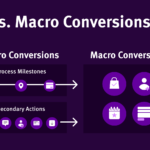Even before the COVID-19 pandemic, businesses were under a significant amount of pressure to embrace technological advancements and make the shift to digital
But when the world temporarily shut down and online became the only means of doing business and communicating with customers, companies had to suddenly adapt overnight in order to survive and avoid the risks of being left behind.
Although the world has started to finally reopen once again, our reliance on digital is here to stay. According to Hootsuite, internet users in the UK have so far spent an extra day online per month in 2021, meaning each individual spends a total of six hours and 20 minutes in comparison to five hours and 28 minutes in 2020.
With people spending more time online than ever before, brands are now faced with even bigger competitor sets, meaning building personal connections with customers is crucial. So in order to keep afloat, they need to focus on delivering seamless, personalised digital experiences that will help them to stand out above the crowd.
According to our recent research, over a half of consumers (62%) feel that companies should place a higher priority on personalised experiences, with nine out of 10 stating they would be happy to share personal data if it meant they received more personalised experiences.
Winning at personalisation
Creating successful personalised experiences cannot be achieved by just guesswork. It requires the ability to look closely into each individual customer’s journey to get an understanding of how they are engaging with your products or services, content and overall brand. A key part of this process is mapping out the customer journey and determining which segments can be personalised in order to achieve maximum engagement with individual customers.
Understanding exactly where personalisation can impact a customer’s experience is key to winning over customers and building loyalty. But to successfully devise the right approach to any personalisation strategy, marketers need to embrace an experimentation mindset.
Getting into the mindset
Experimentation is not only a process, but a mindset that helps brands to continuously test and iterate on different hypotheses. Two of the most common ways are to run A/B tests and personalisation campaigns, but no matter the type of test or hypothesis, it’s crucial to maintain this experimental mindset throughout.
Take AeroMexico for instance. The airline noticed that a large number of customers were abandoning flight bookings after adding them to their cart, so wanted to boost conversions through the checkout process.
AeroMexico believed that the number of customers abandoning their cart could be reduced if they were to show upfront costs for flights earlier on in the customer journey to remove any element of surprise. After carrying out A/B testing, the airline also chose to personalise the experience by making it easier for customers who had left to return to the flights they had added to their basket to purchase them at a later date.
By streamlining the checkout experience for its customers using insights from A/B testing, AeroMexico saw an increase in both revenue and sales conversions.
In order to carry out successful personalisation and experimentation, brands need to continuously test and learn rather than see it as a one-off tick-box exercise. Without constant experimentation, personalisation can result in wasted time and resources, and in some cases can have a negative impact on the overall business.
Data is king
As mentioned, true personalisation cannot be achieved by just guesswork alone. Through the use of digital experience platforms that incorporate artificial intelligence (AI), marketers can take more of a data-driven approach to their personalisation efforts and significantly increase the efficiency of experimentation strategies.
Through data analytics and omnichannel insights, marketers can gather more in-depth and actionable insights into which areas of the customer experience need personalising and how, so that they can drive better results and in turn, better business outcomes.
People often see personalisation as a way to create one-to-one experiences, but there’s more to it than that. Successful personalisation and experimentation requires segmenting and creating actionable insights that can generate a positive impact and drive ROI.
Taking this approach means that marketers are addressing larger groups of people, and through behaviour-based decision making, can help to provide an understanding of what works best for different groups of individuals. Personalisation can be tricky though as it can be seen as an invasion of privacy, so it’s important to give customers the choice in how much personalised communications they want to receive, which is where experimentation can help.
Optimisation is crucial for effective personalisation. By continually experimenting with each section across the customer experience and tailoring it for each audience, brands can access more data-driven insights for better decision making and achieve a better long-term impact.
Unlocking digital potential
The combination of personalisation and experimentation is an extremely powerful way for marketers to enhance their digital experiences and build better, stronger relationships with their customers to drive better business outcomes.
While personalisation on its own without constant experimentation and invention can be risky, by embracing them both, brands are able to fully unlock their digital potential and stand out above the crowd in today’s competitive landscape.
About the Author
Justin Anovick is Chief Product Officer at Optimizely. At Optimizely, we’re on a mission to help people unlock their digital potential. With our leading digital experience platform (DXP), we equip teams with the tools and insights they need to create and optimize in new and novel ways. Now, companies can operate with data-driven confidence to create hyper-personalized experiences. Building sophisticated solutions has never been simpler.
Featured image: ©Johnstocker





